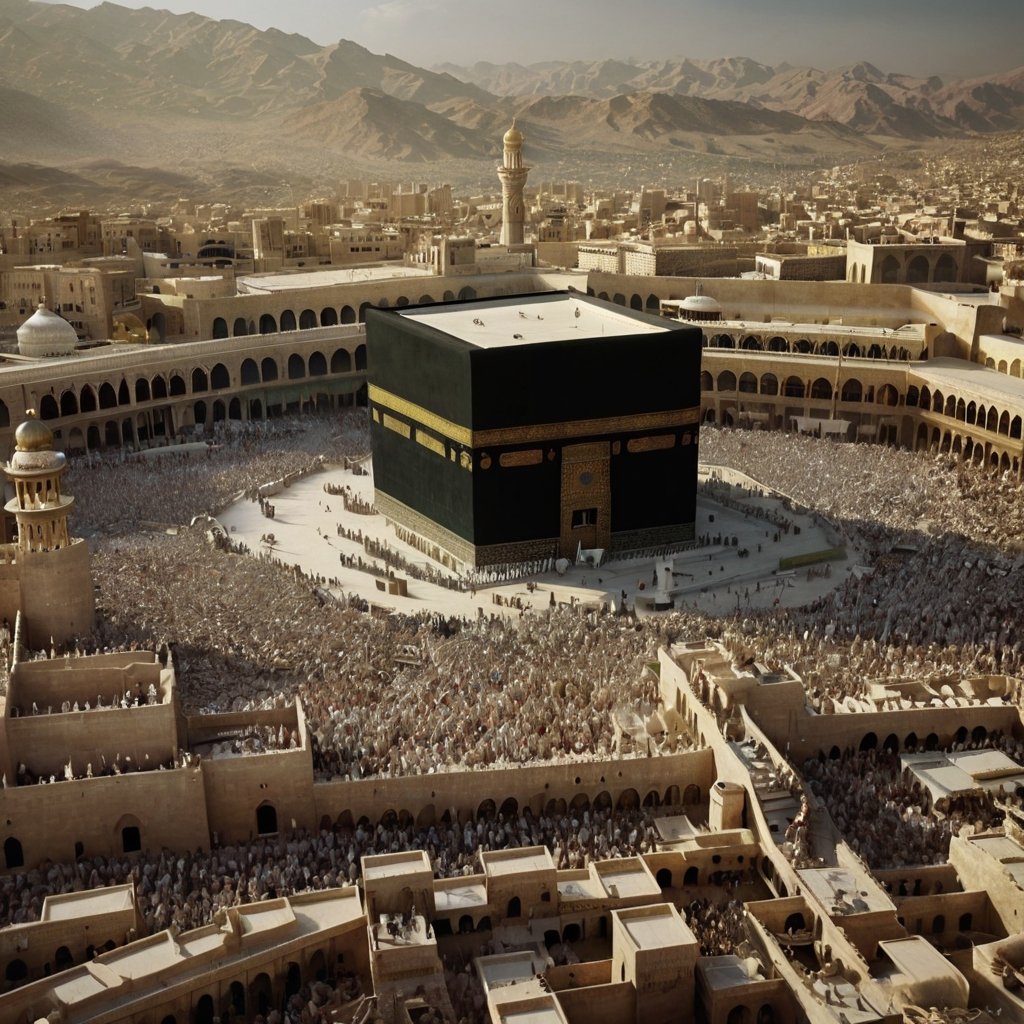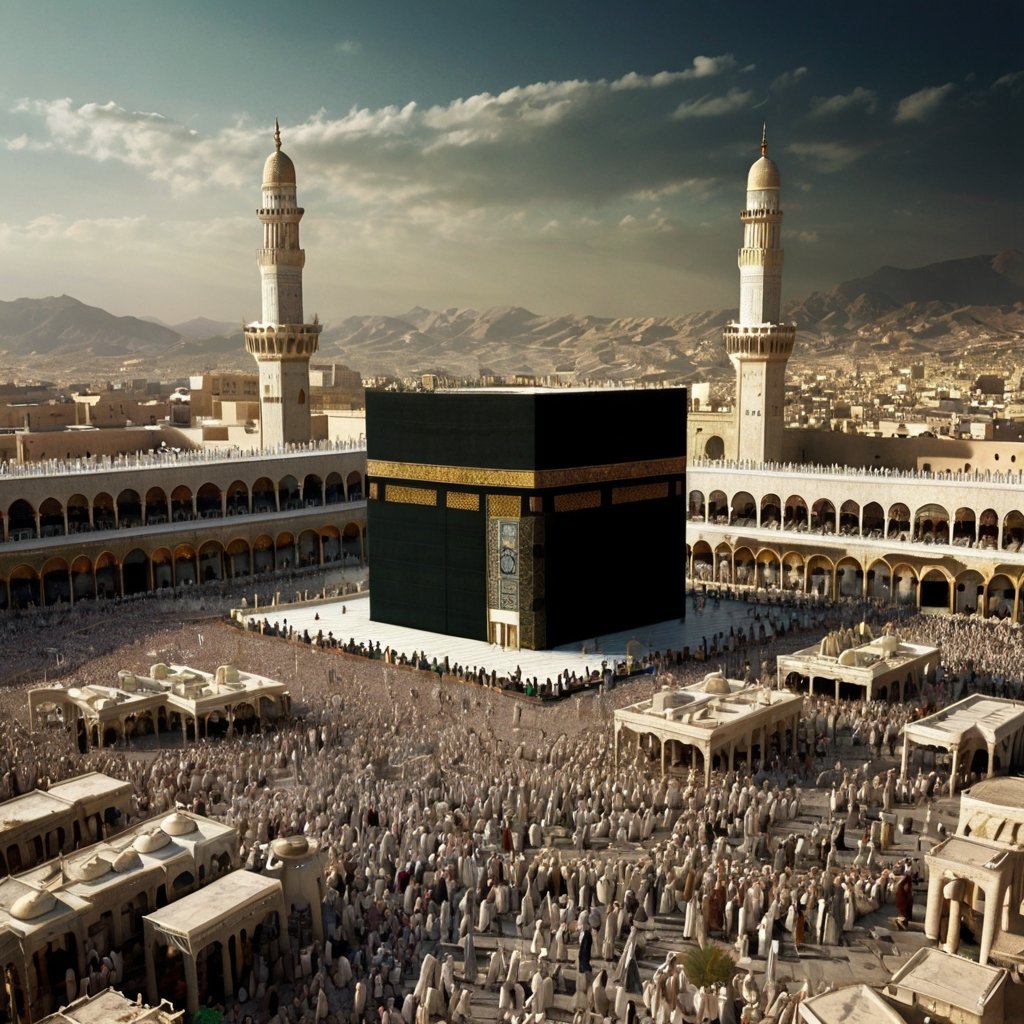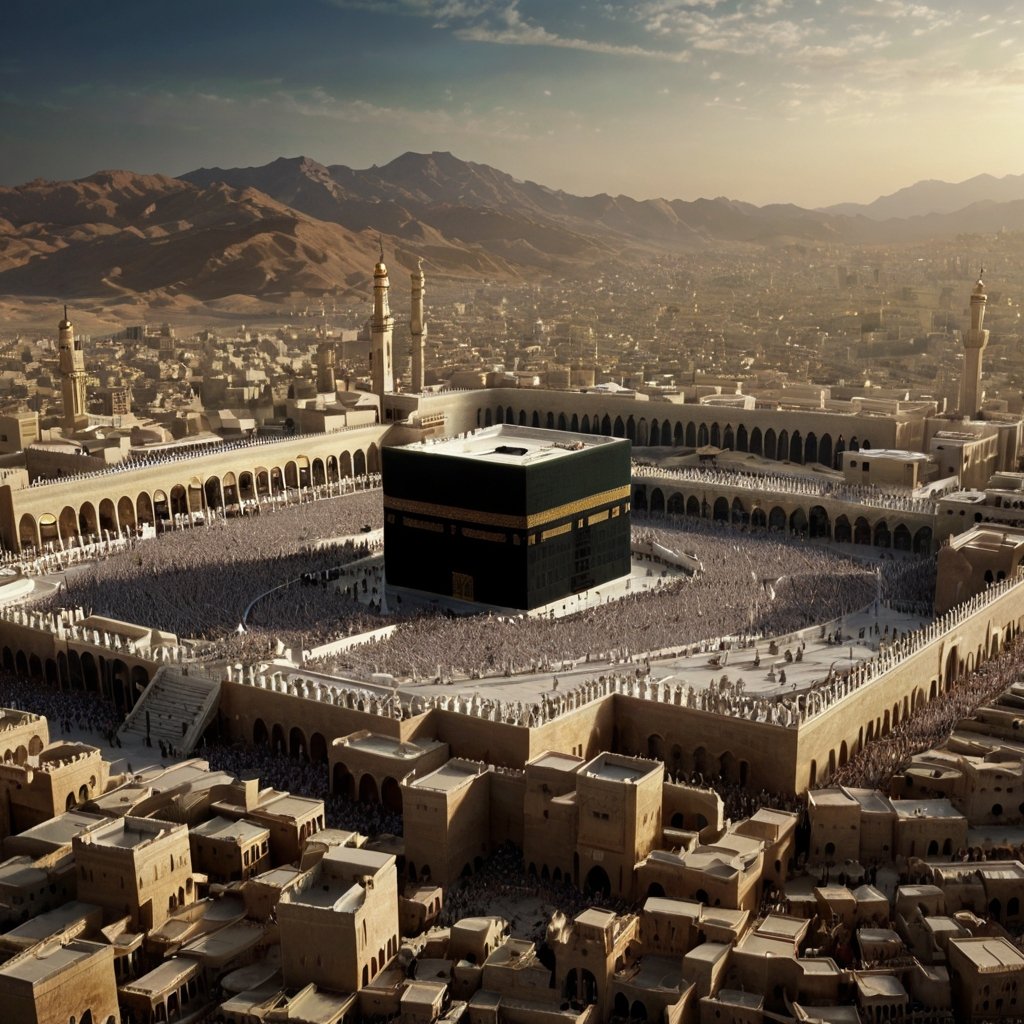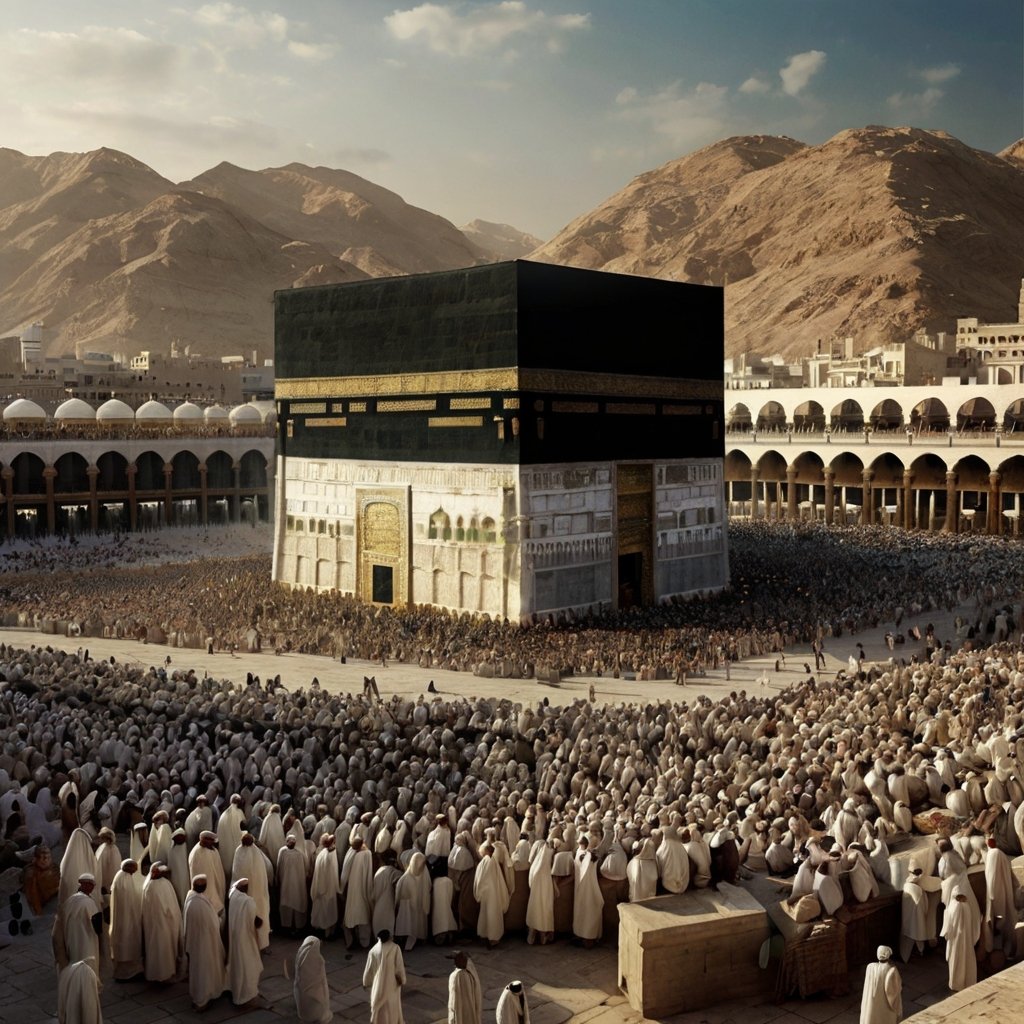History of Islam, Prophet Muhammad built the religion of Islam. He is the last messenger of the islam and Allah. The belief that there is only one God (Allah) and the teachings of the Prophet Muhammad as found in the Quran, the holy book of Islam, are the foundations of the faith.
Table of Contents
Basic Principles of History of Islam:
1. Tawhid, or the Oneness of God:
The idea that there is only one, kind, all-powerful, unique God, or Allah.
2. Angels:
Having faith that angels were sent by Allah for service to and honour Him.
3. Prophets:
The belief that Adam, Abraham, Moses, Jesus, and Muhammad are among the prophets sent by Allah to guide humanity.
4. Revealed Books:
Faith in the Torah, Psalms, Gospel, and Quran, among other books that Allah has revealed.
5. Day of Judgment:
Faith in the day of judgement, on which people shall answer for what they have done.
6. Predestination:
The belief that all that occurs has been planned by Allah, the Almighty.

some topics of History (The Religious History of American Women) :
- historical monuments
- history of islam
- The religious history of american women: reimagining the past.
- What unit is the scientific revolution ap world history
- books on conflict during cold war
The Islamic Five The foundations:
1. The Shahada, or Declaration of Faith:
History of Islam, Only believe in Allah and Prophet Muhammad (PBUH) and there is no other God and last messenger.
2. Salah (prayer):
Saying the five daily prayers.
3. Zakat (Charity):
Donating to those who are poor and needy. Donating money or other basic needs to poors and needy people in muslim families.
4. Fasting:
History of Islam, Keep fasting from fajar prayer to maghrib prayer during the month of Ramadan.
5. Hajj:
Making a journey to Mecca at least once in a lifetime.
Islam highlights:
- – Forgiveness and sorrow
- – Respect for parents and elders
- – Justice and equality
- – Humility and simplicity
- – Kindness to animals and the environment

Prophet Muhammad (PBUH) Early Life
History of Islam, Prophet Muhammad (PBUH) was born into the family of Quraysh in Mecca, Arabia. His mother Aminah died when he was six years old, and his father Abdullah died before he was even born. Muhammad (PBUH) was educated first by his uncle Abu Talib and then by his grandpa Abd al-Muttalib.
Revelations
Muhammad (PBUH), through the angel Gabriel, received his first revelation from Allah (God) at the age of forty. It was the meeting that gave rise to Islam. Muhammad (PBUH) continued to receive revelations for Twenty three years; these were eventually collected into the Quran.
The Mission of Prophecy
Social justice, moral responsibility, and unity were highlighted in Muhammad(PBUH)’s teachings. His beliefs were rejected at first, but he slowly won over a small number of supporters. For thirteen years, he taught in Mecca after being laughed at and tortured.
Migration from Hijra to Medina
History of Islam, Muhammad (PBUH) and the followers of him left slavery and established the first Islamic community at Medina. The Islamic calendar started on this date. Muhammad (PBUH) created the Medina Charter, an agreement that guaranteed equality and justice to everyone who lived in Medina.
Deals and Growth
Through military successes, Muhammad(PBUH)’s successors, the caliphs, increased the reach of Islam after his death. Islam expanded throughout the Middle East, North Africa, and portions of Europe during the Rashidun Caliphate.
The Islamic state of Umayyad
Along with major expansion, the Umayyad Empire suffered from internal division and outside difficulties. The Umayyads instituted a communication system, the government, and centralised governance.

The Islamic state of Abbasid.
History of Islam, During the Islamic state of Abbasid, Islamic culture developed and made advances in the fields of philosophy, literature, science, and the arts. The Abbasids created the House of Wisdom as a centre for translation and instruction.
The Empire of the Muslims
The 13th century saw the rise of the Ottoman Empire, which eventually ruled over portions of all three oceans and was a major global force. The Ottomans developed a military system, paperwork, and centralised administration.
The Modern Period
Modern nation-states developed as a result of the fall of the Ottoman Empire. Currently, more than 1.8 billion people follow Islam world. Major challenges have faced the modern age, such as nationalism, extreme views, and the rule of white people
Important The incidences in Islamic History
1. The Journey by Night
2. The Badr Battle
3. Mecca’s Conquest
4. The Karbala Battle
5. The Revolution of Abbasid
6. The Mongol Invasion
7. Constantinople’s Ottoman Conquest
Conclusion:
History of Islam, Islam is an important worldwide religion that has shaped nations, civilizations, and history, with more than many billion believers worldwide.


Leave a Reply